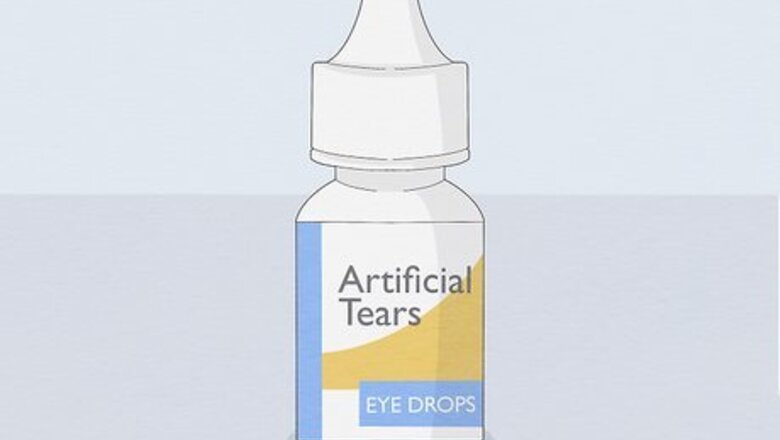
views
Here are 11 proven ways to alleviate dry eyes.
Use artificial tears when your eyes feel dry.
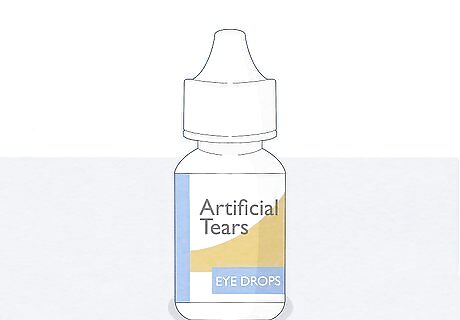
Artificial tears lubricate your eyes to keep them moist on the surface. You can buy artificial tears at any pharmacy, grocery store, or other location that sells personal care products—they're such a common product, you can often even find them at convenience stores. While artificial tears don't necessarily treat the underlying cause of your dry eyes, they do provide relief from the symptoms. Follow the directions on the package when using artificial tears. If you find that you're using them frequently, you might want to see an ophthalmologist (eye doctor) to find out if there's something better you can use. Use eye drops before engaging in visually demanding activities to help prevent dry eyes. Blink often to help spread the moisture evenly across your eyes. If you use artificial tears more than 4 times a day, look for "non-preserved" artificial tears. Preservatives might dry out your eyes even more.
Take frequent breaks during eye-intensive work.
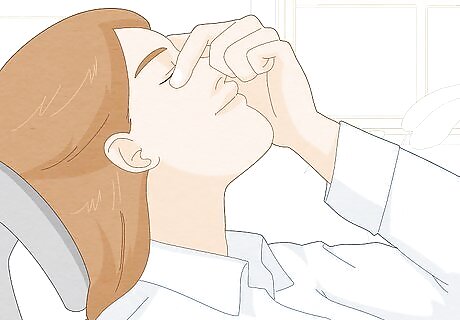
Blink frequently and move your eyes around a lot to keep them active. If you're staring at the same thing for too long, your eyes will likely get dry. In a situation where you need to focus and concentrate on a specific point or area, make a conscious effort to blink as much as possible to keep your eyes lubricated. If you spend most of your workday staring at a computer screen, set up your workstation so that your computer is at eye level and take "eye breaks" every 15 minutes or so to stare off into the middle distance.
Protect your eyes from dry air and irritants.
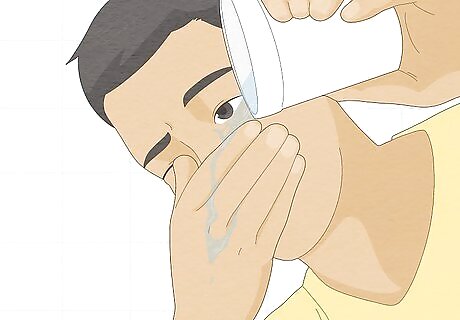
Flush your eyes with water if they're irritated. Fill a cup with cool, filtered water, then put the cup over your eye to gently rinse it out. If you have allergies or live in an area prone to pollution, doing this up to twice a day can ease the irritation. Smoke, smog, pollen, and excessive dryness can interfere with your eyes' ability to stay moist. Pay attention to the environment around you and stay away from excessively dry environments whenever possible. When in a car, direct the air vents away from your face to avoid the air blowing directly into your eyes.
Wear sunglasses when outside.
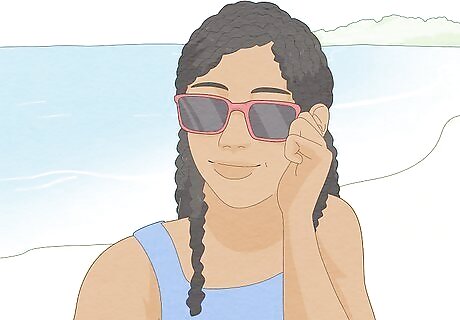
The sun can cause dry eyes, even if it's cloudy out. Sunglasses are especially important if you're going to be spending a lot of time outside. Sunglasses with wraparound frames reduce your eyes' exposure to the drying effects of sun and wind. If you're going to be swimming, wear goggles. Chlorinated water can irritate and dry out your eyes even more.
Change the brand or fit of your contacts if you wear them.
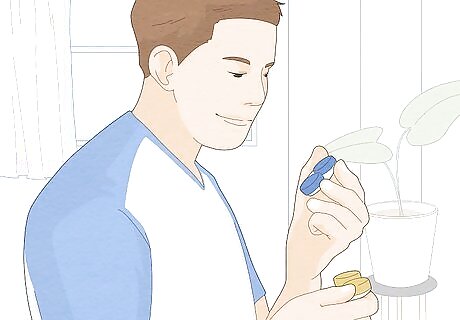
If your contacts aren't permeable enough, they can cause dry eyes. Talk to your eye doctor about how long you wear a set of contacts and how often you replace them. Generally, the longer you leave a set of contacts in, the more problems you'll have. Older contacts also tend to cause more irritation, even when they're properly cleaned. Disposable contacts tend to be the lightest and easiest to use. You also don't have to worry about cleaning them since you throw them out with each use. You might also try wearing your contacts for a shorter period during the day. For example, if you usually wear your contacts all day at work, you might try taking them out at lunch and wearing glasses for the rest of the day.
Switch from contacts to glasses if your vision needs to be corrected.
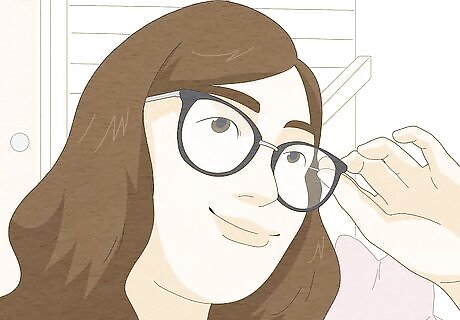
If you've used contacts for several years, it might be time for a break. Using contacts for an extended period of time interferes with your eyes' tear production and blinking. The longer you use contacts, the more likely you are to have a problem with dry eyes. Your eyes are meant to water whenever anything gets into them. However, contacts can dull this reflex, leading to dry eyes over time.
Eat more omega-3 fatty acids.
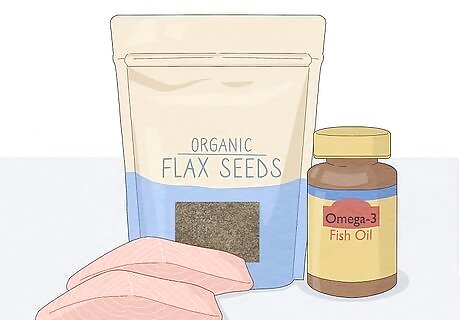
Supplements with omega-3 fatty acids might reduce your symptoms. Ask your eye doctor if they think taking these supplements could help you. If your dry eyes are caused by environmental factors, you might not notice a difference. But for other causes, they might help. Omega-3 fatty acids are found naturally in oily fish, such as salmon and tuna, as well as in flaxseed.
Stay well-hydrated and well-rested.
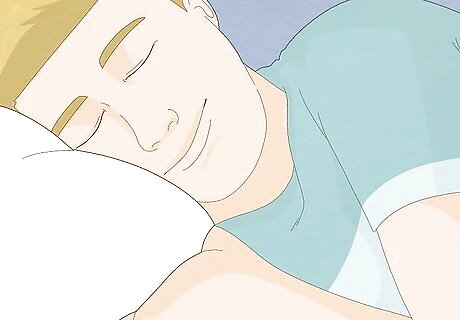
Both sleep deprivation and dehydration can decrease tear production. The National Eye Institute recommends 8 to 10 glasses of water a day and 7-8 hours of sleep each night for healthy tear production. You might not notice an immediate difference, but with time your eyes will feel better if you make these changes. Try to maintain a regular pattern of going to sleep at around the same time in the evening and waking up around the same time in the morning. This will help balance your internal rhythms so you get better quality sleep.
Visit an eye doctor to determine the cause.
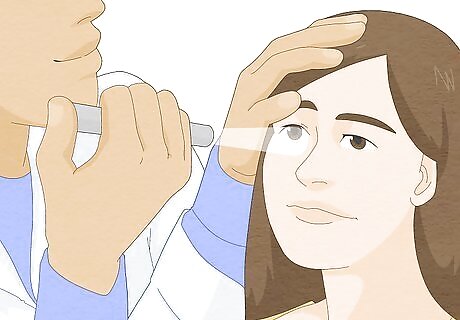
Treating the underlying cause gives you lasting relief. If you only have dry eyes occasionally, you might have no problem using artificial tears now and then when necessary and going on about your day. But if you have to deal with it basically every day, have an eye doctor check it out. They'll ask you lots of questions about your daily activities and environment to try to figure out what might be causing your dry eyes. They'll also look for physical causes, like inflammation of the tear ducts, that could be the culprit. Age can also be a factor. Activities and environments that didn't bother you when you were younger can start to affect you more when you're in your 40s and 50s. Menopause can also cause dry eyes. Tell your eye doctor about any medications you're currently taking. Certain medications, including anti-hypertension drugs and birth control, can cause dry eyes.
Try medicated eye drops if artificial tears don't work.
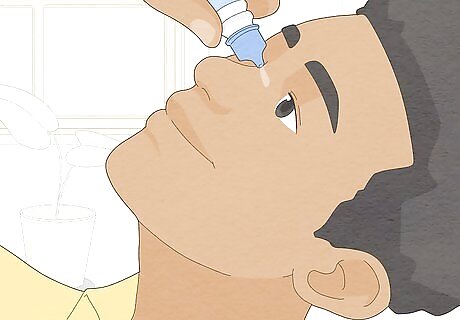
Apply the drops twice a day or as directed by your doctor. If your tear ducts become inflamed, they might not produce enough tears to properly lubricate your eyes. Your eye doctor can prescribe medicated eye drops to reduce this inflammation, although they might take some time to work. Here are some types they might prescribe: Cyclosporine A eye drops: used twice a day to reduce inflammation; they might take 1-4 months to reduce symptoms. Your doctor might also prescribe corticosteroid drops for you to use 2 weeks before these to speed up the treatment process. Lifitegrast: also used twice a day. You might see results in as little as 2 weeks. This is a relatively new drug in a new class of medication to relieve dry eyes.
Discuss surgical options with your eye doctor.
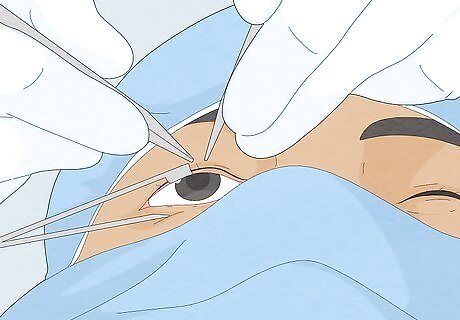
If nothing else provides you relief, surgery might hold the answer. Sometimes, doctors recommend surgery that permanently closes the ducts that drain tears into your nose. This allows the tears to remain around your eye. Doctors typically have you use medicated drops for at least 6 months and only recommend surgery if the drops don't improve your condition. Your doctor might also try temporary plugs, which close the tear drains in your lower eyelids. If the temporary plugs give you relief, your doctor can insert permanent plugs. This procedure is a lot simpler than surgery.












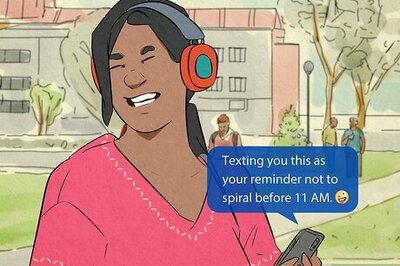






Comments
0 comment